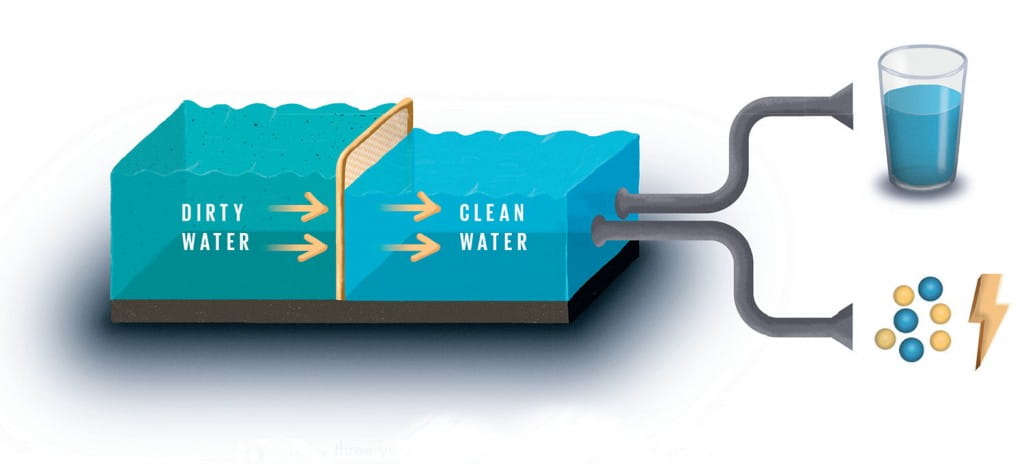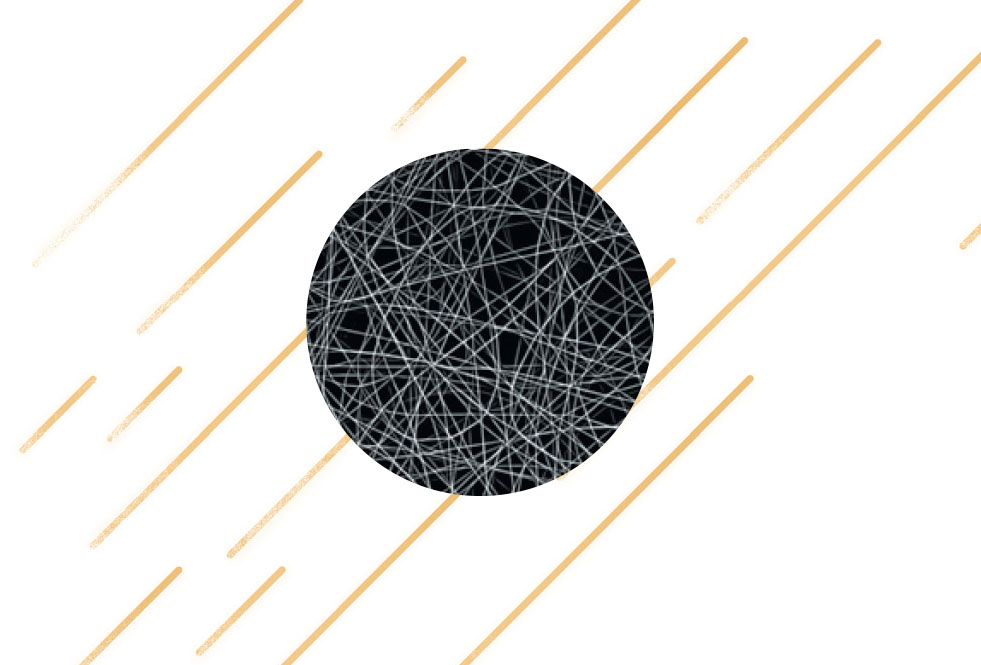Stories > Technology With A Heart
Technology With A Heart

-
NanoSun’s water filtration membrane is made with patented titanium dioxide nanotechnology. Titanium dioxide is a cheap and abundant material that has the ability to accelerate a chemical reaction and to bond easily with water.
-
Under sunlight or ultra violet rays, pollutants are removed when wastewater passes through the photocatalytic membrane.
-
The titanium dioxide nano particle skill the bacteria and break down organic compounds in the wastewater.
-
Clean drinking water is produced.

Depending on the specific end product needed , the titanium dioxide nanofiber can be combined with carbon, copper, zinc or tin to produce multifunctional membranes.
Clean drinking water for the whole world? This pipe dream may soon become a reality with home-grown start-up NanoSun’s first-of-its-kind invention: a cost-effective and multifunctional water filtration membrane that converts wastewater into clean drinking water.
BY LOW SHI PING
ILLUSTRATION RODRIGO FORTES PHOTO NANYANG TECHNOLOGICAL UNIVERSITY
arely three years old, NanoSun, a Singapore start-up, is already getting its fair share of attention with its invention, a multifunctional water filtration membrane which can quickly convert wastewater to drinking water.
This membrane has the potential to revolutionise the water industry. According to a UN-Water Global Analysis and Assessment of Sanitation and Drinking-Water 2014 Report, some 748 million people have no access to drinking water, and an estimated 1.8 billion people drink contaminated faecal water.
While it may still be premature for these populations to be celebrating, when NanoSun steps up its game, its invention could well be on its way to solving one of the most pressing problems of our time.
Based out of Nanyang Technological University (NTU), Associate Professor Darren Sun (pictured, left) from NTU’s School of Civil and Environmental Engineering is the brains behind NanoSun’s water membrane, while Adjunct Professor Wong Ann Chai (pictured, right) from the Nanyang Business School provides financial perspective.
Together, they have created a product that answers the need for cost-effective technology to treat wastewater as urbanisation picks up pace.
Says Prof Sun: “What the world needs – and what we have developed – is a breakthrough technology which can turn large volumes of polluted or untreated water into drinking water quickly, safely and at a fraction of the cost.”
SELF-CLEANING
The membrane certainly scores points on many levels, possibly blowing its competitors, literally, out of the water. For starters, it offers the perfect solution to biofouling – the gradual accumulation of water-borne organisms on wet surfaces – that is a major challenge for the US$200 billion (S$270 billion) global water industry.
Traditional water filtration processes usually leave conventional membranes, made of plastic or ceramic, clogged with what they are trying to remove, thus obstructing water flow. However, NanoSun’s self-cleaning membrane kills organic material and bacteria when they come into contact with it.
Any remaining organic material can be destroyed by baking the membrane, which is resistant to high heat, in a 700 deg C oven.
This is possible because the membrane is made by titanium dioxide nanotechnology patented by NanoSun. Titanium dioxide is a low-cost and widely available material that can be obtained from minerals in the ground, and is an ingredient found in paint, sunscreen and food colouring.
On a nanoparticulate level, under sunlight or ultraviolet rays, titanium dioxide kills bacteria and breaks down organic compounds in wastewater to produce clean drinking water and hydrogen.
It also trumps conventional membranes with its resistance to breakage, a lifespan that is twice as long, and a flow rate that is at least 10 times faster. Produced by a 3-D printer, it even has a hip factor.
Today, the company is already valued at US$80 million, and has received funding from the Prime Minister’s Office, national water agency PUB, NTU and private investors.
LOCAL AND REGIONAL INTERESTS
Water agencies from the region and multinational corporations have also made their interest in NanoSun’s technology known.
“The scope for our membranes is far-ranging and of benefit to companies in the chemicals, food and biomedical industries,” says Prof Wong. “Apart from our capabilities to improve wastewater treatment and desalination plants, multinational companies in the food and beverage industry have also expressed interest in using our technologies in their production processes.”
Among the deals cut include one with an Indonesian conglomerate that has businesses in various industries, such as coal mining and real estate development. The agreement will see the membrane used to provide 10,000 cubic metres of clean water in a day.
In the next few years, its water membrane technology will be taking a big step in China through a partnership inked in March this year with China Commerce Group for International Economic Cooperation, a majority state-owned enterprise headquartered in Beijing.
This will see its technology used in the Qingdao National High- Tech Industrial Development Zone, a 20 sq km industrial zone in Shandong. It is expected to treat one million litres of wastewater from the textile industry by August this year. In the next three to four years, the partnership is expected to treat about 100 million litres of wastewater.
On a smaller scale, NanoSun is also looking into downsizing the membranes so that they can be inserted into household products as well as other products used for humanitarian aid and disaster relief efforts.
But the potential doesn’t just stop there. Its titanium dioxide nanotechnology can also be harnessed to produce hydrogen for energy use, to make anti-bacterial bandages and in air filtration.
If there is one lesson to be learnt from NanoSun’s invention, it is to never underestimate the power of extremely small particles to achieve big things.
